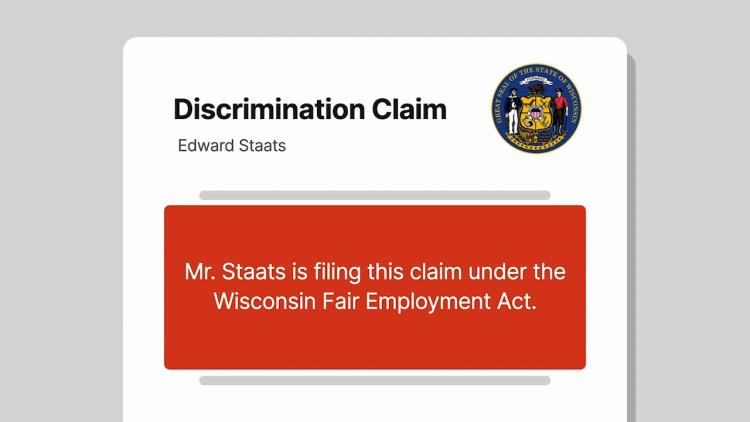Staats v. County of Sawyer
United States Court of Appeals for the Seventh Circuit
220 F.3d 511 (2000)
- Written by Matthew Carney, JD
Facts
Edward Staats (plaintiff) was the personnel director for Sawyer and Bayfield counties (defendants) in Wisconsin. He served in this position starting in May 1993. In September 1994, Staats was hospitalized for bi-polar disorder. He attempted to return to work in November 1994 under conditions set by his doctor. However, before Staats could resume work, Sawyer and Bayfield counties told him that his position had been eliminated. Staats believed this to be an attempt to discriminate against him and brought charges under Wisconsin’s state discrimination laws. Following litigation before administrative bodies, Staats’ case was appealed to a Wisconsin state court, where it was dismissed. Shortly after dismissal Staats brought a claim before the EEOC that Sawyer and Bayfield counties violated the Americans with Disabilities Act. After receiving a “right to sue letter” from the EEOC, Staats sued Sawyer and Bayfield counties in federal district court. Sawyer and Bayfield counties moved for summary judgment, claiming that the federal counts were precluded from being heard in federal court due to previous discrimination claims heard in state court. The district court agreed and dismissed the claims.
Rule of Law
Issue
Holding and Reasoning (D. Wood, J.)
What to do next…
Here's why 907,000 law students have relied on our case briefs:
- Written by law professors and practitioners, not other law students. 47,100 briefs, keyed to 996 casebooks. Top-notch customer support.
- The right amount of information, includes the facts, issues, rule of law, holding and reasoning, and any concurrences and dissents.
- Access in your classes, works on your mobile and tablet. Massive library of related video lessons and high quality multiple-choice questions.
- Easy to use, uniform format for every case brief. Written in plain English, not in legalese. Our briefs summarize and simplify; they don’t just repeat the court’s language.







